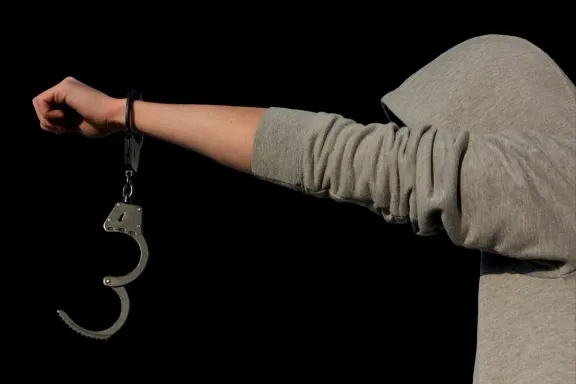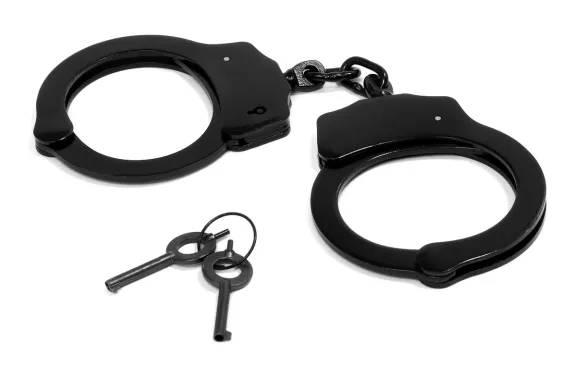Assisting in Crime: What Happens When You're One Who Helps Another to Commit a Crime?

When you hear about someone being charged for a crime, it often involves the primary offender. But what happens when you're one who helps another to commit a crime? You could be held liable as an accomplice and face serious legal consequences, even if you didn’t directly break the law.
Accomplice liability covers acts of aiding or abetting, meaning you could be accused of helping, encouraging, or enabling the crime. This can have life-changing repercussions, from heavy fines to lengthy prison sentences. Understanding your legal standing is crucial—and so is knowing your defence options.
Key Takeaways
- An accomplice is someone who assists another person in committing a crime and may face legal consequences under accomplice liability laws.
- Legal terms such as "aiding," "abetting," and "accessory" describe different forms of helping in a crime, with specific implications for each.
- To be found liable as an accomplice, courts must establish your knowledge or intent to help the crime, such as providing resources, advice, or encouragement.
- Common offences involving accomplices include theft, drug trafficking, and conspiracy, with penalties ranging from fines to severe prison sentences.
- Accomplice sentencing depends on the level of involvement, with higher culpability leading to more severe penalties.
- Defence strategies can include demonstrating lack of intent, mistaken identity, or withdrawal from participation, potentially reducing or eliminating liability.
- Working with experienced solicitors, such as MMA Law, can strengthen your defence if charged with aiding or abetting offences.
The law defines one who helps another commit a crime as an “accomplice” and, therefore, subject to “accomplice liability” or “aiding and abetting” in legal terms. This means that even if you didn’t commit a crime, a court may still find you guilty of assisting someone else.
This post clarifies the responsibilities, risks, and legal consequences of assisting in a crime and why it’s critical to understand the law. It discusses the legal definitions and terms that apply, the specific actions that make you an “accomplice” and some common offences involving aiding and abetting. It also looks at the legal consequences of this crime and how to defend against it.
Remember, MMA Law can help you if you are under investigation for assisting in a crime. We provide expert advice and defence for individuals charged with aiding or abetting offences.
Definitions and Legal Terms: Accomplice, Aiding, and Abetting

Legal terms related to assisting in a crime can be confusing because they aren’t often used in everyday language. However, once you understand them, you can better know where you stand if accused.
An “accomplice” is a generic term for someone who assists in a crime but isn’t the primary offender. For example, authorities may claim you are an accomplice if you provide a vehicle someone else uses to flee a crime scene.
More specifically, “aiding” means assisting or supporting the main offender. For example, the police might charge you with providing them with resources, information, or advice that makes it easier for them to commit the crime.
“Abetting” refers to situations where police claim you incited the primary offender to commit a crime. For example, they may say you offered them a reward or used persuasive language to get them to do something against the law. As such, “aiding and abetting” refers to helping the primary offender and convincing them to carry out illegal activities.
You may also come across additional terms, like “accessory” or “accessory to a crime.” These are other words the authorities may use if they believe you helped someone before, during or after the offence. “Complicity” has a similar meaning under UK criminal law. It includes a broader set of criminal participatory activities, including procuring items necessary to carry out a crime, or knowingly contributing to an offence in some way.
The Role and Actions That Constitute Accomplice Liability

Becoming an accomplice in a crime is easier than you might think. Courts only need to prove criminal intent or other actions and behaviours that legally constitute “helping another to commit a crime.”
For example, accomplice liability may apply if you:
- Provide resources to someone to help them commit a crime, such as giving them a wrench to break into cars or transporting them to a crime scene
- Help someone plan their offence with advice on how to escape detection by the authorities for example
- Provide encouragement that convinces the primary offender to carry out a crime, such as justifying physical violence against a third party
To be accused of the role of an accomplice, courts must demonstrate criminal intent or knowledge of the crime. Authorities must show evidence of complicity such as supplying plans or resources or using powers of persuasion.
Common Offences Involving Accomplices

You are more likely to be accused of being a criminal accomplice for some offences than others. For example, theft-related crimes, like shoplifting, often involve criminal organisations or burglary rings. In these situations, accomplices help commit crimes by distracting store employees, scouting for vacant properties, or providing lockpicking resources.
Those caught in these acts usually face prison sentences from a few months for unarmed aiding and abetting to years for cases of armed robbery. Financial institutions will also attempt to confiscate any stolen assets and return them to their owners.
Drug offences also often involve individuals working together. Gangs operate like firms, organising to acquire, transport, and sell illegal substances to target markets. Accomplice liability applies to anyone who facilitates these activities, even if they don’t handle the drugs directly. Again, conspiracy to supply drugs is a serious offence in the UK and courts may hand down severe penalties.
The severity can relate to the class of drugs. For example, conspiracy to supply class A drugs will carry heavier sentencing compared to supplying class b drugs such as cannabis. Sentencing will also depend on prior criminal history.
For example a repeat offender being found in possession of drugs will usually receive harsher punishment compared to being found in the possession of class A drugs as a first time offender. Other factors can include the accomplice’s specific role and the quantity of drugs trafficked. Sentences can sometimes go up to life for large-scale operations, alongside heavy fines and asset seizures.
Fortunately, MMA Law has significant expertise in conspiracy, drug trafficking, and criminal defence. As such, our team can help you if you are facing any common accomplice-related charges.
Legal Consequences of Aiding or Abetting a Crime

As noted above, the legal consequences of aiding or abetting a crime can be substantial, including fines, prison sentences, and criminal records that make it challenging to move overseas or find work at home. However, the degree of punishment depends on your specific role in the crime (if any). Generally, the more peripheral your role, the less liable you will be. As such, accomplice sentencing will usually take your role into account.
For example, suppose you helped a group of armed robbers by driving their getaway car for them. In this situation, your level of culpability would be high, since the robbery depends, in part, on you providing a vehicle. However, the amount of blame (and therefore punishment) you receive is likely lower if you only tipped off the robbers that a specific company was an easy target.
Unfortunately, the legal consequences of aiding in crime can be severe (regardless of sentencing) Criminal penalties could disqualify you from working in specific professions or undermine your personal relationships. You might find it challenging to get work in the future, and people in your social network may distance themselves from you if courts find you guilty.
Defence Strategies for Accomplice Liability
Fortunately, even if you have been charged, there are several defence strategies for accomplices you can explore. These may reduce your culpability or eliminate it, depending on the circumstances.
Here are some examples of legal defences you could explore with a skilled criminal defence solicitor:
- Withdrawal from participation: Lawyers could help you show that you tried to avoid being an accomplice to the crime by calling the police for assistance or doing something that undermined the intended outcome, such as abandoning the scene in the getaway car before the primary offenders returned from a robbery.
- Mistaken identity: Lawyers can also argue that the police mistook you for someone else in some situations. For example, you may have been walking past when the crime happened and caught on CCTV, leading the police to arrest you, even if you played no role in the crime.
- Lack of intent: Lawyers can also argue that your alleged participation did not include an element of intent and, therefore, does not qualify as complicity in the crime. For example, you may have unwittingly provided information that perpetrators later used to commit the crime.
Developing these legal defence strategies is challenging, so it is essential to get professional solicitor assistance. If you need help, contact MMA Law. We have a track record of exceptional criminal defence and can support you while facing these charges. For example, we offer free legal representation at the police station, 24 hours a day, 365 days a year. We also offer a free 30 minute legal consultation.
FAQs About Assisting in a Crime and Accomplice Liability
We’ve built up decades of experience dealing with assisting in crime cases. Below are some of the most common questions and issues come up in these kinds of cases. If you’ve got a question that isn’t answered below, please contact us directly.
What does it mean to be an accomplice to a crime?
An accomplice is someone who intentionally helps, encourages, or supports another person in committing a crime. This assistance can take many forms, such as providing tools, offering advice, or helping plan or cover up the offence.
Under UK law, accomplices are held accountable for their role and may face the same or similar penalties as the primary offender, depending on their level of involvement. Being an accomplice does not require direct participation in the crime but rather actions that aid or enable it.
What is the difference between aiding and abetting?
"Aiding" refers to giving assistance or support to someone committing a crime, while "abetting" involves encouraging or inciting the criminal act. Both terms fall under accomplice liability and can lead to serious charges. For example, aiding might involve providing tools or transport, whereas abetting could mean convincing someone to commit the offence. In legal proceedings, these distinctions can affect how charges are framed and the potential penalties.
What are common examples of accomplice liability offences?
Common offences involving accomplice liability include theft, burglary, drug trafficking, and conspiracy. In theft-related cases, an accomplice might distract a store clerk while others steal goods, or provide information on potential targets. Drug trafficking often involves multiple individuals who aid in distribution, transportation, or supply. Conspiracy charges can apply to any group working together to commit an illegal act. Courts carefully evaluate each person’s role to determine guilt and sentencing.
How can intent impact accomplice liability charges?
Intent is a crucial factor in accomplice liability. Prosecutors must show that the alleged accomplice knowingly aided or abetted the crime. Simply being present or unintentionally providing assistance may not be enough to prove criminal intent. Defence strategies often focus on demonstrating a lack of intent. For example, showing that the accused did not know their actions would aid a crime or were coerced into participating. Proving intent is often a key element in building a strong legal defence.
What legal consequences can an accomplice face?
Legal consequences for an accomplice can range from fines and community service to lengthy prison sentences. The severity of the penalty depends on the specific role and level of involvement. More significant participation, such as being an essential part of planning or executing the crime, often results in harsher sentencing. Accomplices may also face collateral consequences, such as damage to reputation, limited employment opportunities, and difficulty travelling abroad.
Can an accomplice be charged even if the primary offender is not?
Yes, it is possible for an accomplice to be charged independently of the primary offender. Courts may proceed with charges if they believe there is sufficient evidence that the accomplice aided or abetted the crime. This can happen even if the primary offender has not been apprehended, charged, or convicted. The law treats each person’s actions individually, and being an accomplice is considered a crime in itself.
What defence strategies can help someone accused of being an accomplice?
Defence strategies can include proving a lack of intent, mistaken identity, or withdrawal from the crime. For example, a solicitor may argue that the accused did not know their actions would contribute to the crime, or that they tried to prevent it. Mistaken identity claims can arise when evidence suggests the accused was not present or involved. Withdrawal from the crime involves proving that the accused took steps to distance themselves from the offence or actively tried to stop it.
What should I do if I’m accused of being an accomplice?
If you are accused of being an accomplice, contact a solicitor immediately to protect your rights and begin building a defence. Being proactive with legal representation is essential to navigate complex charges and minimise potential consequences. MMA Law’s experienced criminal defence solicitors specialise in aiding and abetting cases and can guide you through every step, from police station interviews to court proceedings. Seeking professional advice is crucial to ensuring the best possible outcome.
What is “accessory to a crime” and how does it differ from being an accomplice?
An “accessory” is someone who helps before or after a crime is committed but may not be present during the crime itself. For example, an accessory might hide stolen goods or help the offender evade capture. In contrast, an accomplice usually provides support during the commission of the crime. Both roles can lead to criminal charges, but the level of culpability and associated penalties may differ based on the nature and timing of their involvement.
Examples and Case Studies of Accomplice Liability in the UK

The following are hypothetical examples based on real accomplice case studies that illustrate what could happen when working with a solicitor.
John B.
John B. was accused of assisting in an armed robbery after providing information via text message about when the county’s armed response unit might be busy. John was a friend of the primary offender but did not know how he would use the information, as is common in many accomplice cases.
The court initially charged John with being an accomplice to the crime because he provided information on the best time to conduct the robbery. However, further examination of the situation by his solicitor found that he didn’t know that an offence would occur. Therefore, the courts exonerated from wrongdoing because of the absence of intent.
Phil P.
Police accused Phil P. of being an accomplice in a serious drug trafficking operation by turning a blind eye to illicit substances entering the country at a port. Phil P. admitted he knew about the drugs to the authorities investigating the crime.
However, Phil P.’s solicitor argued that he had later taken action to prevent the trafficking by reporting the perpetrators to the police. While Phil admitted to allowing drugs to enter the country, he tried to correct his poor decision by informing the authorities. Consequently, he faced a significantly reduced sentence.
Malcolm G.
Authorities charged Malcolm G. with being an accomplice in supplying drugs to a local community after viewing CCTV footage of what looked like him acting as a scout in a drug-dealing operation. Later, police proved his involvement through additional evidence, including forensic data at the scene. Consequently, Malcolm couldn’t work with his solicitor to argue a case of mistaken identity, leading to severe charges.
These criminal examples show how lawyers can use the law and evidence to reduce or eliminate sentences only when such options are available. For example, it is possible to argue on grounds of diminished responsibility if your involvement level is low or the evidence against you is poor quality. However, courts will still hand down severe sentences if your role as an accomplice is clear.
In Summary
Being an accomplice to a crime, whether through aiding, abetting, or otherwise assisting, carries significant legal consequences that can severely impact your life, from criminal records to prison sentences. Understanding your legal status and the actions that could lead to accomplice liability is crucial for protecting your rights and building a strong defence. By recognising common offences where accomplice charges arise and exploring potential defence strategies, you can better navigate these complex situations.
Key Points to Remember:
- Accomplice liability applies when you assist, encourage, or facilitate a crime, even if you didn’t commit it directly.
- Common offences involving accomplice charges include theft, drug trafficking, and conspiracy.
- Legal consequences can range from heavy fines to prison sentences and lasting effects on your personal and professional life.
- Defending against such charges may involve proving lack of intent, mistaken identity, or withdrawing from participation in the crime.
MMA Law can provide expert legal advice and representation, guiding you through complex criminal proceedings. With extensive experience in aiding and abetting cases, our team offers a strong defence strategy tailored to your unique circumstances, ensuring your rights are fully protected. If you’re facing allegations, contact us for a professional, compassionate, and proactive defence.
